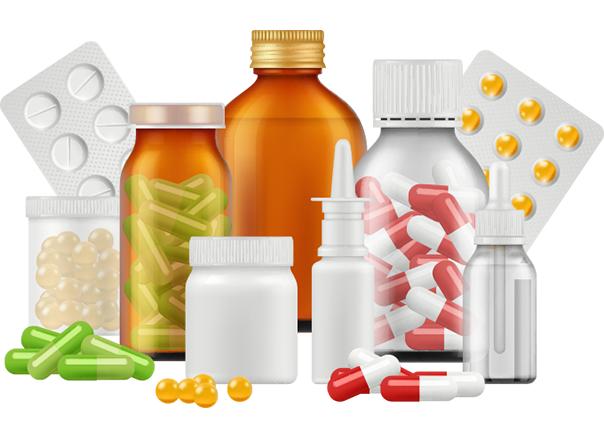The Lifesciences industry, encompassing biotechnology, pharmaceuticals, research laboratories, and healthcare, is critical to improving the quality of life and driving innovation. At the heart of this ecosystem lies the lifescience wholesale distributor—a vital link connecting manufacturers and end-users, ensuring the seamless supply of essential products. This article delves into the role, challenges, benefits, and trends associated with lifescience wholesale distributors.
Understanding Lifescience Wholesale Distribution
Lifescience wholesale distributors are companies specializing in the supply of scientific products, equipment, and consumables. These products may include laboratory reagents, medical devices, diagnostic kits, pharmaceutical raw materials, and research tools. Distributors act as intermediaries, bridging the gap between manufacturers and diverse customers such as research institutions, hospitals, pharmaceutical companies, and academic organizations.
Their role is multifaceted, including inventory management, logistics, quality assurance, and customer support. By ensuring that customers receive the right products at the right time, distributors enable researchers and healthcare professionals to focus on their primary objectives—innovating and delivering care.
The Importance of Lifescience Wholesale Distributors
1. Streamlining Supply Chains
Lifescience distributors simplify supply chains by consolidating products from multiple manufacturers into one platform. This reduces complexity for end-users who would otherwise need to engage with numerous suppliers.
2. Ensuring Availability of Critical Products
In sectors where timely delivery is crucial, such as healthcare and research, distributors play a pivotal role in preventing shortages. Their robust inventory systems ensure consistent product availability.
3. Quality Assurance
Compliance with stringent regulations is non-negotiable in life sciences. Wholesale distributors often implement rigorous quality control measures to ensure the products meet industry standards, such as Good Distribution Practice (GDP) and ISO certifications.
4. Cost Efficiency
Distributors achieve economies of scale by purchasing in bulk, allowing them to offer competitive pricing to end-users. Additionally, their expertise in logistics minimizes shipping costs and lead times.
5. Technical Support
Many lifescience products require specialized knowledge for proper use. Distributors often employ trained professionals to provide guidance on product selection, application, and troubleshooting.
Core Services Provided by Lifescience Distributors
1. Inventory Management
Distributors maintain extensive inventories to ensure that commonly used products are always in stock. This is especially important for perishable items like reagents and chemicals, which require controlled storage conditions.
2. Logistics and Delivery
Effective distribution involves temperature-controlled shipping, secure packaging, and tracking systems to prevent damage or delays. Lifescience distributors excel in delivering products promptly and in optimal condition.
3. Regulatory Compliance
Navigating the complex landscape of regulations is a key responsibility. Distributors ensure products comply with local and international laws, including customs clearance for imported goods.
4. Customer Education
Beyond product delivery, distributors often provide training sessions, webinars, and on-site demonstrations to educate customers about new technologies and best practices.
Challenges Faced by Lifescience Wholesale Distributors
Despite their critical role, distributors encounter various challenges, including:
1. Regulatory Complexity
The life sciences sector is heavily regulated, with varying requirements across regions. Distributors must stay updated on changes to ensure compliance and avoid penalties.
2. Supply Chain Disruptions
Events like the COVID-19 pandemic highlighted vulnerabilities in global supply chains. Distributors often face delays and increased costs due to transportation and manufacturing disruptions.
3. Technological Advancements
As the industry evolves, distributors must adapt to new technologies, such as advanced diagnostics and biotechnological tools, requiring significant investment in training and infrastructure.
4. Competition
The rise of direct-to-consumer models and e-commerce platforms has increased competition, pressuring distributors to enhance their value proposition.
5. Sustainability Concerns
With growing emphasis on environmental responsibility, distributors are expected to adopt sustainable practices, such as reducing packaging waste and optimizing transportation routes.
Key Trends in Lifescience Distribution
1. Digital Transformation
Distributors are increasingly leveraging technology to streamline operations. This includes implementing Enterprise Resource Planning (ERP) systems, using Artificial Intelligence (AI) for demand forecasting, and adopting e-commerce platforms for a seamless customer experience.
2. Focus on Sustainability
Green logistics, eco-friendly packaging, and energy-efficient warehouses are becoming standard practices. Many distributors are also collaborating with manufacturers to promote sustainable product lines.
3. Personalized Customer Experiences
With advanced data analytics, distributors can offer tailored recommendations and proactive support, enhancing customer satisfaction.
4. Expansion into Emerging Markets
Distributors are tapping into regions like Asia-Pacific, Latin America, and Africa, where demand for life sciences products is growing rapidly due to increasing healthcare investments and scientific research.
5. Emphasis on Training and Education
To support innovation, distributors are partnering with academic institutions and industry leaders to offer educational resources, ensuring customers stay informed about the latest advancements.
How to Choose the Right Lifescience Wholesale Distributor
Selecting a distributor is a critical decision that impacts operational efficiency. Here are key factors to consider:
- Product Range: Ensure the distributor offers a comprehensive portfolio of products to meet your needs.
- Reliability: Look for a proven track record in timely delivery and consistent quality.
- Technical Expertise: A distributor with in-house specialists can provide valuable insights and support.
- Regulatory Compliance: Verify that the distributor adheres to all relevant regulations and standards.
- Customer Support: Assess the availability and responsiveness of their support team.
Examples of Leading Lifescience Wholesale Distributors
Several global companies excel in lifescience distribution, including:
- Thermo Fisher Scientific: Known for its extensive product range and innovative solutions.
- VWR International (Avantor): Offers tailored services for research and industrial applications.
- Fisher Scientific: A trusted name for laboratory supplies and reagents.
- Merck (MilliporeSigma): Specializes in high-quality products for life sciences and pharmaceuticals.
These companies set benchmarks for quality, reliability, and innovation, inspiring smaller distributors to adopt similar practices.
The Future of Lifescience Wholesale Distribution
The role of distributors is evolving alongside advancements in the life sciences. Future trends include:
- Integration with Artificial Intelligence: AI-powered tools will enable precise demand forecasting and inventory optimization.
- Blockchain for Transparency: Blockchain technology will enhance traceability, ensuring the authenticity and safety of products.
- Collaboration with Manufacturers: Stronger partnerships will drive innovation and improve supply chain efficiency.
- Focus on Customer-Centric Models: Customizable solutions and subscription-based models are likely to gain popularity.
Conclusion
Lifescience wholesale distributors are indispensable in ensuring the smooth functioning of the life sciences industry. By addressing supply chain complexities, maintaining product quality, and supporting innovation, they empower researchers, healthcare providers, and manufacturers to make breakthroughs that benefit society. As technology and sustainability reshape the industry, distributors must adapt to stay ahead, continuing their critical role as the backbone of scientific progress.
FAQs
Q: What is the primary role of a lifescience wholesale distributor?
A: Their primary role is to ensure the timely and efficient delivery of scientific products from manufacturers to end-users while maintaining quality and compliance.
Q: How do distributors maintain product quality?
A: Distributors follow strict quality assurance protocols, including proper storage, temperature control, and adherence to regulatory standards.
Q: Why is digital transformation important for distributors?
A: Digital tools enhance efficiency, accuracy, and customer experience, enabling distributors to meet the demands of a fast-paced industry.
Q: What challenges do distributors face in global markets?
A: Regulatory diversity, supply chain disruptions, and competition are some of the challenges in global markets.
Q: How are distributors contributing to sustainability?
A: By adopting green logistics, reducing packaging waste, and promoting eco-friendly products, distributors play a role in environmental conservation.








